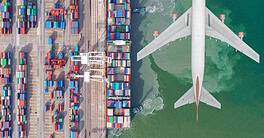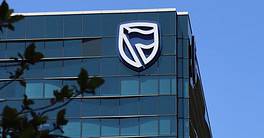In an era of volatility and change, the independence of central banks can no longer be taken for granted.
For at least the past 20 years, the independence of central banks has been trumpeted by developed countries, such that it has become nearly synonymous with a well-run economy.
Both the Federal Reserve and the European Central Bank are independent from political power. Its promoters say this independence has been very important to keep inflation at bay, avoid monetary financing of public deficits and support economic growth even at times of crisis.
Donald Trump’s unprecedented August request for lower interest rates has raised eyebrows. On the other side of the Atlantic, the pending appointment of a new head for the European Central Bank (ECB), to replace Mario Draghi when his term expires in October 2019, is creating some concerns. The market is keen on seeing whether the next “Mr. Euro” will be the best qualified for the job or a political favorite.
Any serious challenges to central banks’ independence are nightmares for financial professionals. “The main—possibly the only—reason we have moved into a low and stable inflation environment in the last 20 years is that central banks became independent,” says Paul Sullivan of UBS Wealth Management. “Politicians are not very good at running central banks.”
Some insiders credit the strong independence of the US Fed to Paul Volcker, who served as its president from 1979–1987 and raised the cost of money to combat stagflation—the combination of high inflation, high unemployment and stagnating growth. “It turned out well for us to have a very strong independent central bank,” says Chris Waller at the St. Louis Fed. “A country without a strong independent central bank ends up with bad economic outcomes.” He argues that cases like Argentina or Turkey demonstrate what can go wrong when central banks are not managed well.
Turkey’s President Tayyip Erdogan, after winning election in June, claimed the power to name the members of the central bank, prompting a market reaction against the Turkish lira. Venezuela’s central bank isn’t independent; while in South Africa, the majority African National Congress party has called for government ownership of a few privately owned central banks.
Since the Bank of Japan agreed in 2013 to coordinate its policies with the government, it has also been criticized for a lack of independence. Many Western economists look askance at how much the People’s Bank of China (PBC) depends on political power. Some argue that central bank independence matters more for developed countries than developing ones, because developed nations are more prone to regulatory capture.
An often-mentioned academic study written by Harvard University economic professor Alberto Alesina and former US Treasury chief Lawrence Summers says that independent central banks are better at keeping inflation at bay.



